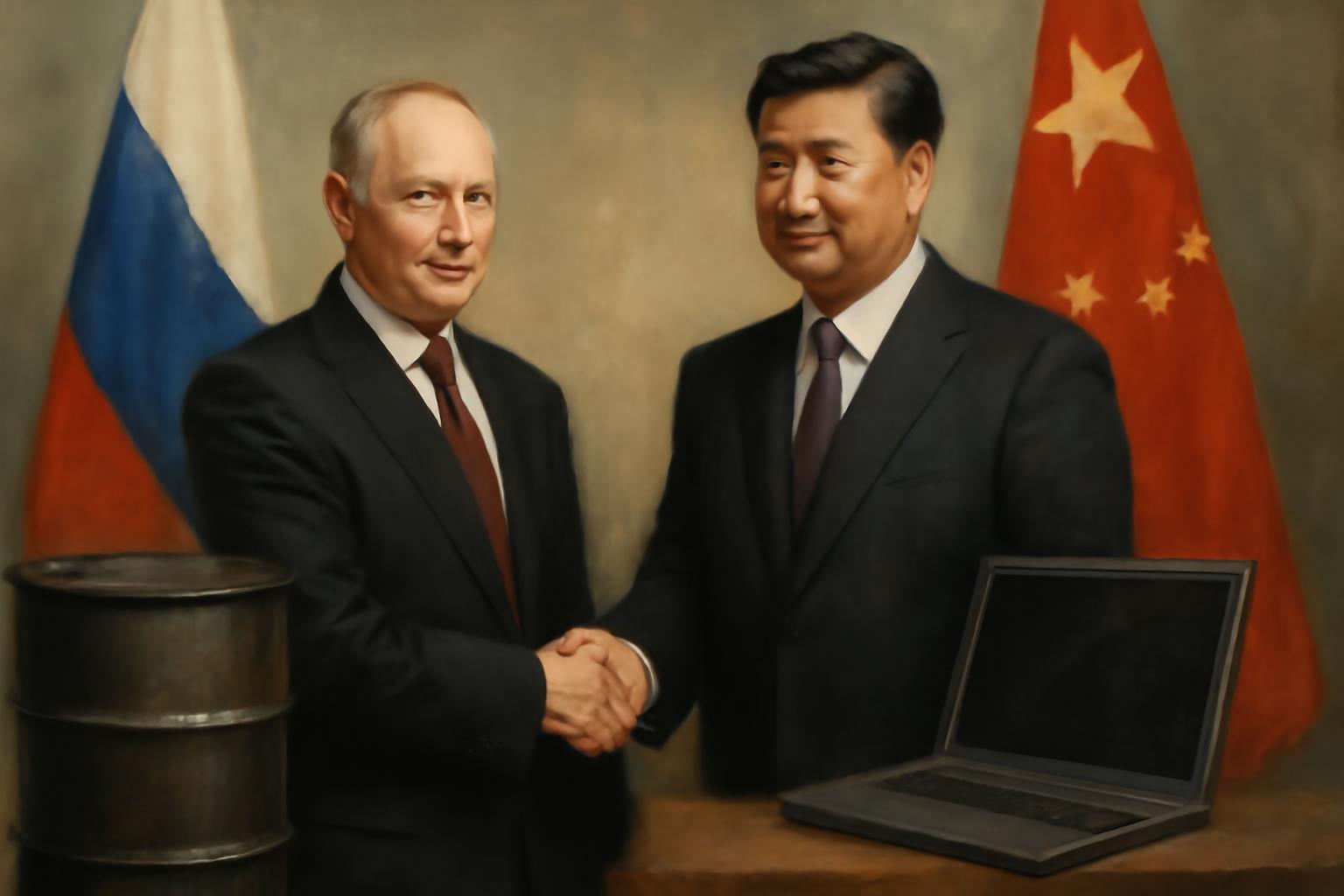One cannot miss the choreography: a twentieth official journey to the Celestial Empire framed as an unprecedented deepening of ties. Four days of talks, a chorus about a “special privileged strategic partnership” whose potential, they insist, remains vast. Moscow and Beijing poised to ink yet another Gazprom deal, a clear reminder that China is still the premier warehouse for Russia’s oil and gas, while Russia touts China as a major market for its own goods—cars, in particular. Both capitals declaim their stance against “discriminatory” sanctions and present their alliance as a stabilizing counterweight in a world that supposedly yearns for multipolar order. Putin appeals to history, invoking World War II to cast Russia and China as defenders of truth against neonazism and militarism, the moral cudgel used to justify Moscow’s war in Ukraine as part of an ideological alignment rather than a calculation of power.
Analysts note that bilateral trade has cooled since mid-2024, with frictions simmering behind the scenes and a slower Chinese economy limiting a full rebound to last year’s fevered volumes. The verdict is hedged: China remains economically dominant and has leverage, while Moscow dutifully offers concessions—perhaps including tech—in exchange for continued support. In the heart of Moscow’s business districts, whispers persist that China supplies industry and labor, but not the cutting-edge technology Western markets still demand for advanced capabilities. Tourism and people-to-people ties have surged, yet the Kremlin must keep its allies in line. In short, a robust but carefully hedged partnership that serves as a counterweight to the West while navigating practical limits and ongoing frictions.
As the heir to a fortune built on patience, I observe this spectacle with a wry, almost affectionate contempt. A partnership dressed in grandiose rhetoric, scrawled in the ink of “multipolar” dreams, while the ledger tells a more prosaic truth: energy and access are the currency, and technology remains the hard-wought prize. They posture about a shared historical destiny, yet their alliance is, at heart, a pragmatic marriage of convenience between two economies that crave shelter from Western scrutiny more than they ache to outshine one another. Moscow offers concessions—likely a few gleaming tech promises—to unlock a steady stream of revenue and influence; Beijing, in return, extracts security for its supply lines and a pliant, if not wholly reliable, partner in a world that prefers complexity to clarity. The public narrative glitters with anti-sanctions valor and wartime memory, but the underlying calculus is simple: diversify risk, dull the blow of Western sanctions, and keep the engines running. For those who mistake bravado for vision, this trip is a reminder that great power balancing acts are rarely poetry; they are spreadsheets, and the margin for error is ruthlessly narrow.
